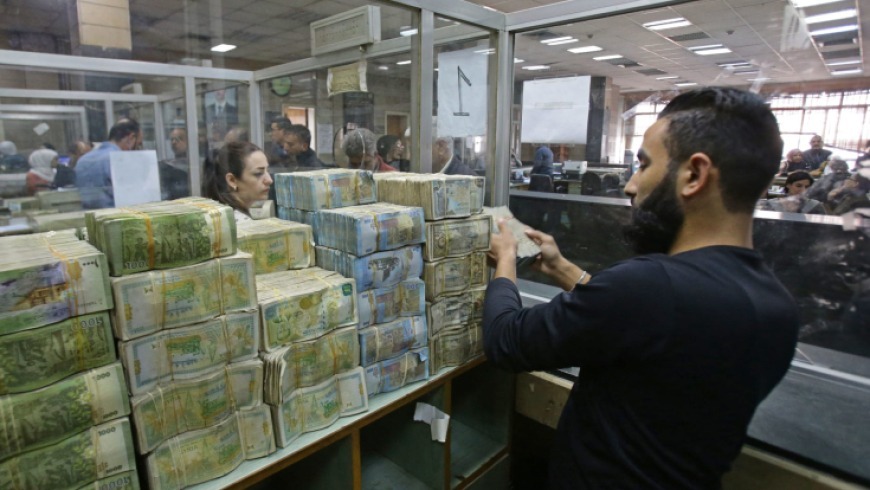Economist George Khozam stated that the Syrian pound’s exchange rate against the US dollar is unlikely to improve, even if the Central Bank of Syria receives up to $100 million in foreign remittances daily. This situation arises because the Central Bank does not release these dollars into the market, retaining all incoming US dollar liquidity.
Khozam elaborated on this in a Facebook post, explaining that the increase in dollar remittances to the Central Bank has no effect on the US dollar supply in the black market, where the exchange rate is actually determined.
He pointed out that the exchange rate on the black market is set by those who have US dollars to trade, unlike the Central Bank, which only sets the buying rate for the US dollar and does not engage in selling at market prices.
Worn and Tattered: Syria’s Currency Crisis Hampers Eid al-Fitr Remittances
Khozam suggests that to truly impact the US dollar exchange rate, it would be necessary to distribute a significant portion, if not all, of the US dollar remittances directly to their recipients. This would increase the US dollar supply in the black market, potentially lowering its price. Additionally, he recommends repealing the laws that criminalize dealing in dollars to facilitate this process.
Decrease of Syrian pound after fake increase
The Syrian pound’s exchange rate against the US dollar began to fall after a temporary increase during Ramadan, which was artificially boosted by a surge in remittances. Khozam previously stated that the stability of goods prices in Syrian pounds in the markets, despite the weakening US dollar, effectively amounts to a price increase.
He explained that any hesitation to reduce market prices in light of the US dollar’s decline suggests that prices will likely surge again when the US dollar strengthens. Khozam attributed this trend to the superficial nature of the US dollar’s decline, driven not by increased production and exports but by a temporary rise in US dollar remittances.
He also highlighted that the reduction in goods supply against rising demand can be traced back to the infamous import financing platform. This platform has significantly slowed the financing of imports, encouraging monopolistic practices and paving the way for price increases. This, coupled with the consistent or falling US dollar rate, has led to a depletion of the Syrian pound’s purchasing power and a reduction in the number of food baskets affordable on a modest salary, despite the apparent stability or decrease in the US dollar exchange rate.
This article was translated and edited by The Syrian Observer. The Syrian Observer has not verified the content of this story. Responsibility for the information and views set out in this article lies entirely with the author.


